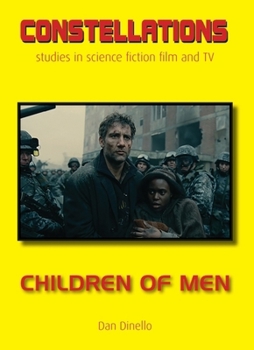Children of Men
A mirror of tomorrow, Alfonso Cuar n's visionary Children of Men (2006) was released to good reviews and poor box office but is now regarded by many as a twenty-first-century masterpiece. Its propulsive story dramatizes a dystopian future when an infertile humanity hurtles toward extinction and an African refugee holds the key to its survival. Cuar n creates a documentary of the near future when Britain's totalitarian government hunts down and cages refugees like animals as the world descends into violent chaos. In the midst of xenophobia and power abuses that have led to a permanent state of emergency, Children of Men inspires with a story of hope and political resistance. Dan Dinello explicates Children of Men's politically progressive significance in the context of today's rise of authoritarianism and white nationalism. Though topical at the time, the film now feels as if it's been torn from today's headlines. Examining the film from ideological, psychological, and philosophical perspectives, the book explores the film's connection to post-9/11 apocalyptic narratives, its evolutionary twist to the nativity story, its warning about the rise of neofascism, and its visual uniqueness as science fiction, delving into the film's gritty hyper-realistic style and the innovative filmic techniques developed by director Cuar n and his cinematographer, Emmanuel Lubezki. Dinello explores the film's criticism of the pathologies of a reactionary politics that normalize discriminatory hierarchies and perpetuate vast differences in privilege. Children of Men prods us to imagine an egalitarian alternative with a narrative that urges emotional identification with rebels, outcasts, and racial and ethnic outsiders.





